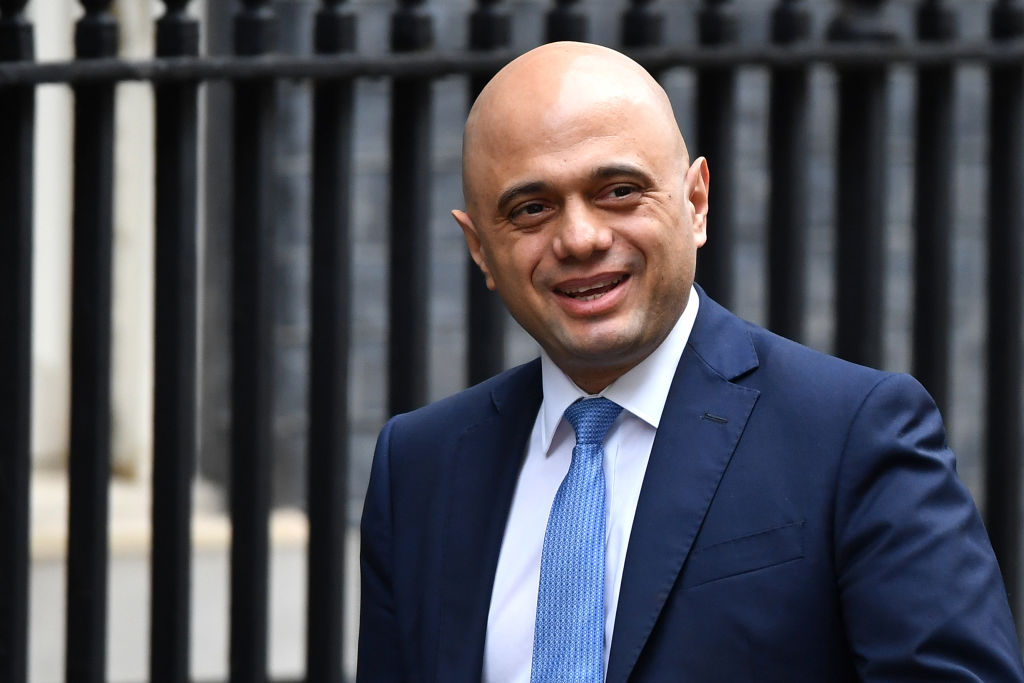
The U.K.’s finance minister Sajid Javid has unexpectedly resigned from his post in Boris Johnson’s government, as the U.K. Prime Minister embarks on the first shakeup of his top team since his emphatic election victory in December.
Javid was reportedly told to sack his entire team of advisors to keep his job. Instead, he chose to resign.
Javid’s resignation could mean more power concentrated in the hands of the Prime Minister. To replace him, Johnson appointed an inexperienced minister, Rishi Sunak, as Chancellor of the Exchequer (the formal title for Britain’s finance minister) on Thursday. And the U.K. Treasury’s advisory team is now reportedly set to be merged with one in the Prime Minister’s office, 10 Downing Street, a potentially long-lasting shift in the way Britain is governed.
Ahead of Johnson’s reshuffle on Thursday, government sources briefed the media that the changes would be minor. Javid’s resignation changes that.
The son of a Pakistani bus driver who rose through the ranks of the Conservative Party, Javid was Home Secretary (interior minister) before being appointed Chancellor when Johnson became Prime Minister in July. He had run for the top job himself in the Conservatives’ internal leadership contest over the summer of 2019, and was tipped by some for a future role leading the party.
But in his role as Chancellor, Javid — an advocate of restrained state spending — reportedly clashed with Johnson’s team in 10 Downing Street, who have talked about increasing public spending in a break from Conservative tradition. “Javid was to the economic right, he always regarded himself as a Thatcherite,” says Rob Ford, politics professor at the University of Manchester, referring to Britain’s former Prime Minister Margaret Thatcher, a champion of the neoliberal free market. “If you look at the voters Conservatives have won over the last two electoral cycles, these are people who are socially on the right — nationalistic, anti-E.U., anti immigration — but economically broadly on the left, favoring more government intervention, don’t think the economy is fair, don’t particularly love free markets,” Ford says. “If you wanted to secure that section of the electorate, it makes sense to move to the left economically.”
Replacing him as finance minister — just four weeks ahead of the U.K. budget announcement, the biggest date in the Chancellor’s calendar — is Sunak, former chief secretary to the Treasury and a rising star in the Conservative Party. “He’s very young, very junior, very much an unknown quantity,” says Ford. “He’s come into a job where his predecessor said, ‘I’ll never work in this job under these conditions.'”
The promotion is a steep one for Sunak, a Johnson loyalist. In his former role, Sunak would attend cabinet meetings but his position was not that of a cabinet minister. Now, he takes on arguably the second most powerful position in the U.K. government.
Javid’s resignation will also cast fresh scrutiny on the role of Johnson’s top advisor, Dominic Cummings, a divisive figure in Westminster who wants swingeing reforms of the U.K. government system, and has been unafraid to sack ministerial aides — and now, apparently, ministers — if they refuse to cooperate.
The opposition Labour Party was quick to criticize the events of Thursday morning. “This is a historical record,” said John McDonnell, Sunak’s opposite number in the Labour Party. “A government in chaos within weeks of an election. It’s clear Dominic Cummings has won the battle to take absolute control of the Treasury and has installed his stooge as the Chancellor.”
Also relieved from his cabinet position on Thursday was Julian Smith, the Northern Ireland secretary who had succeeded where his predecessors had failed in facilitating a resumption of power-sharing in the Northern Irish assembly, which collapsed following a scandal in 2017. Accompanying Smith out of Downing Street’s metaphorical garbage chute were business secretary Andrea Leadsom, who was reportedly seen as having underperformed; and attorney general Geoffrey Cox, who will be best remembered for providing legal justification (eventually struck down in the supreme court) for suspending Parliament in September, at the height of the Brexit drama.
Johnson also appointed Alok Sharma, the former international development secretary, to head up Britain’s preparations for the crunch COP 26 climate conference set to be held in Glasgow in November. The conference marks five years since the Paris Agreement was reached and and is a crucial moment in international efforts on climate change, with countries due to upgrade the goals on cutting emissions they set at the 2015 meeting.
This is a developing story. Please refresh for updates.
More Must-Reads from TIME
- Donald Trump Is TIME's 2024 Person of the Year
- Why We Chose Trump as Person of the Year
- Is Intermittent Fasting Good or Bad for You?
- The 100 Must-Read Books of 2024
- The 20 Best Christmas TV Episodes
- Column: If Optimism Feels Ridiculous Now, Try Hope
- The Future of Climate Action Is Trade Policy
- Merle Bombardieri Is Helping People Make the Baby Decision
Write to Billy Perrigo at billy.perrigo@time.com